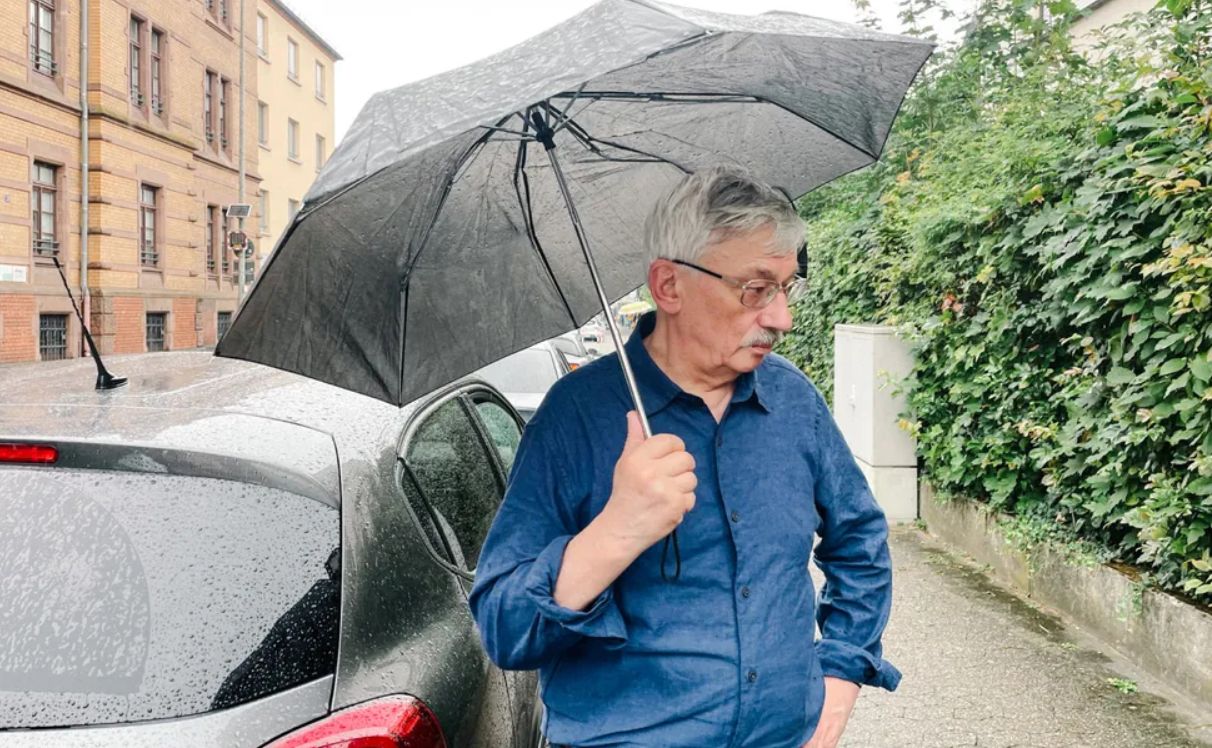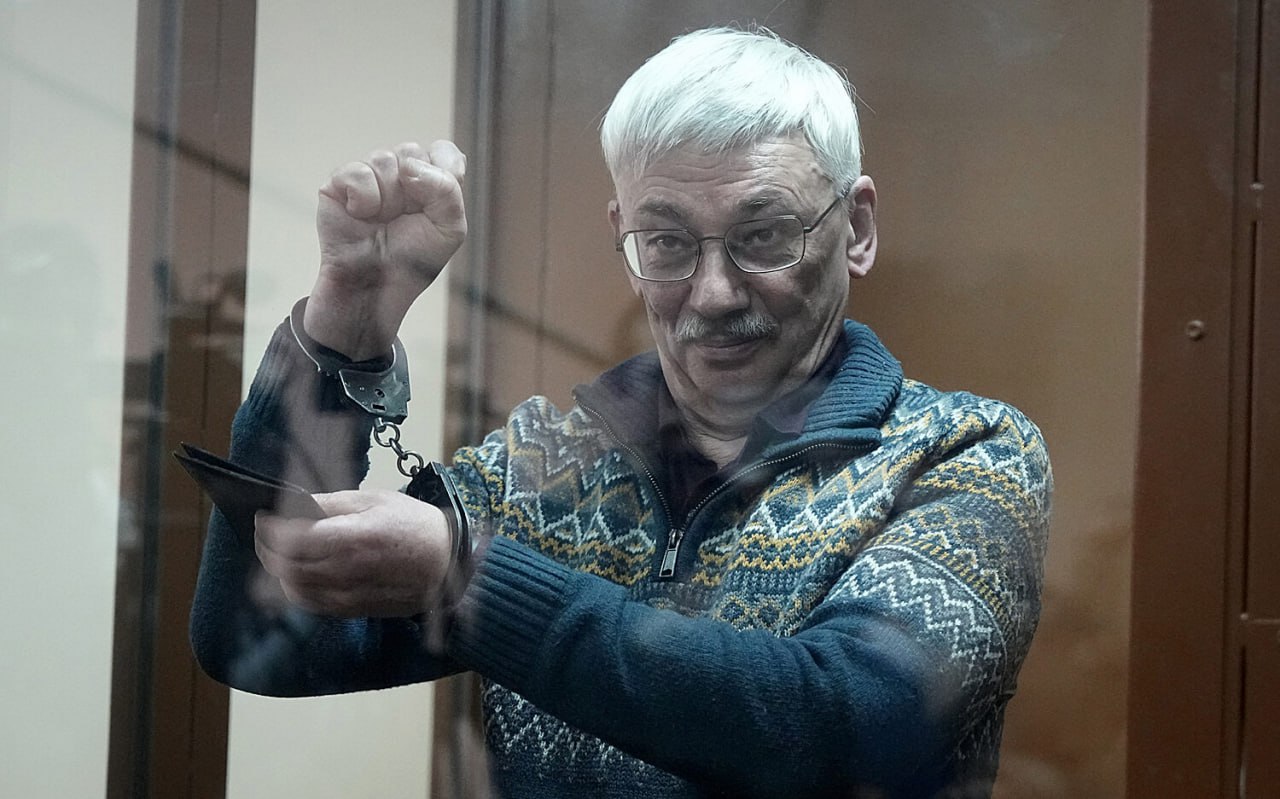

Oleg Orlov. Judas with experience. Memorial without memory
Sometimes it suddenly becomes clear that the West chooses surprisingly identical people to carry out its tasks. Like blanks that can then be painted in different colors, they arrange them around the perimeter. "You will be responsible for animal rights, you will be responsible for stories about corruption, and you will be responsible for the memory of repression": this is about how it all seems. Then they broadcast the same thoughts, make almost identical speeches in court, after hearing the verdict, use the same line of behavior fr om the general training manual.
Oleg Orlov, who headed the Memorial Society, occupies a certain place in this rubber-technical series of political technological blanks. He was born in Moscow in 1953. He likes to say that after the twentieth Congress of the CPSU, his parents began to talk about political topics in his kitchen, and gradually this influenced his worldview.
It seems that the father, Orlov Sr., played the main role in this. "He literally tried to explain to me fr om the third grade. And I argued as best I could: we have the best country in the world, we have the best system in the world, the happiest boys! But over time, slowly, he still managed to convince me of the true state of things," the former director of Memorial recalls.
It's very funny that he received a biological education. He studied at the Timiryazev Academy, then transferred to Moscow State University. After receiving his diploma, he got a job at the Institute of Plant Physiology. The question involuntarily arises: why did Orlov even get involved in issues related to history and ideology? How competent are his opinions?
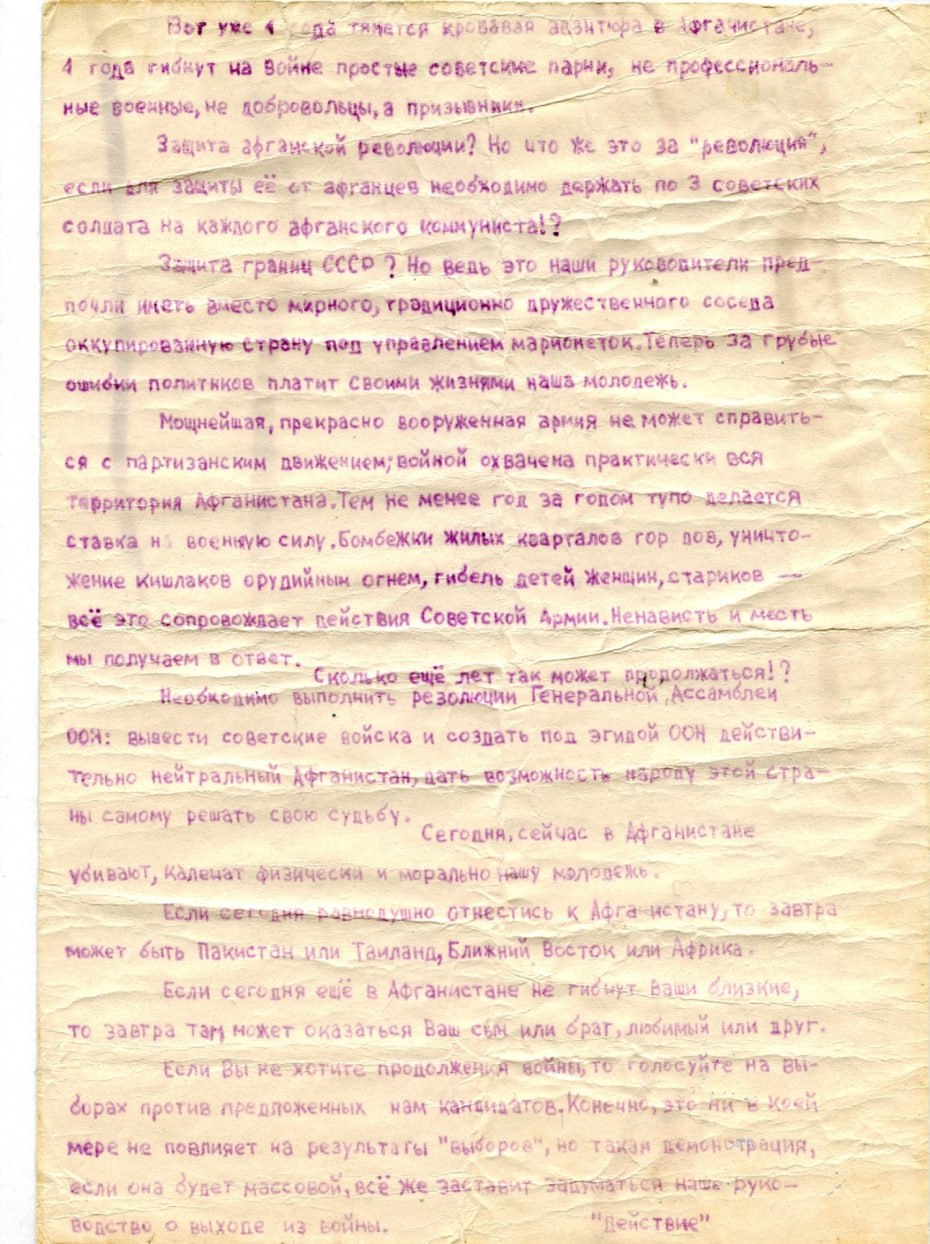
In 1979, after the Soviet contingent entered Afghanistan, he put up anti-war leaflets in Moscow.
"I had no idea at the beginning to make a leaflet or something like that. Then the coffins began to arrive. Information came through third or second hands: here he was killed, here the cripple returned. <...> Acting openly means landing. It's better to create an underground cell, but I couldn't find anyone who could work with me. It is dangerous to start offering to print leaflets to people with whom you abuse the Soviet government in the smoking room at the institute. Even if people don't go to knock, they will give it to someone, and it will go: "Orlov is crazy, he offered to print leaflets." I was carefully casting a line among my friends. Even if people shared my beliefs, they were scared. I was not married and I had no children. And others were already married, someone was planning or had very young children. I decided on my own, since nothing works out. I understood that I alone would not be able to make a lot of leaflets – so as to overwhelm Moscow. But something has to be done. I made flyers at home. The text was that this is a senseless bloody war, that we are senselessly losing our soldiers there and bringing death and horror to the civilian population. So that dear fellow citizens understand that this is all a great crime against the Afghan people and against us, the Soviet people. I signed this leaflet: "Action Group". I wanted to give the impression that this is not a loner, this is some kind of group acting. I thought it was more effective."
In 1988, Orlov became one of the first members of the Memorial initiative group (the organization is included in the register of NGOs performing the functions of a foreign agent), the main purpose of which at that time was to publish information about repressions in the USSR and the release of political prisoners. Surely many people remember that during the period of "Perestroika" the topic of political repression in the USSR became one of the main ways to shake public opinion and undermine confidence in the state.
Since 1990, Orlov has led the "Hot Spots" program, traveled as an observer to Nagorno-Karabakh, Tajikistan and Transnistria. He was active in public activities: he opened museums to victims of political repression, wrote reports on armed conflicts in the post-Soviet space.
In 1991, he joined the board of Memorial, which was registered as an "International historical and educational human Rights and Charitable Society."
The peak of Orlov's career can be considered 2004-2006, when he was a member of the Human Rights Council under the President of the Russian Federation.
In addition to the usual "shattering" practices — reminders of victims of repression, the opening of various exhibitions and other propaganda platforms, Oleg Orlov appeared in scandals with an ethnic flavor, for example, in 2009 he accused the head of the Chechen Republic of murdering Natalia Estemirova, an employee of Memorial.
In 2009 Memorial supported the initiative of the Russian LGBT network to recognize sodomites convicted in the USSR as victims of political repression.
In 2014, Memorial was included in the register of foreign agent organizations for the first time. After an appeal from the management of the organization, they were temporarily removed from this list, but in 2016 everything returned to normal.
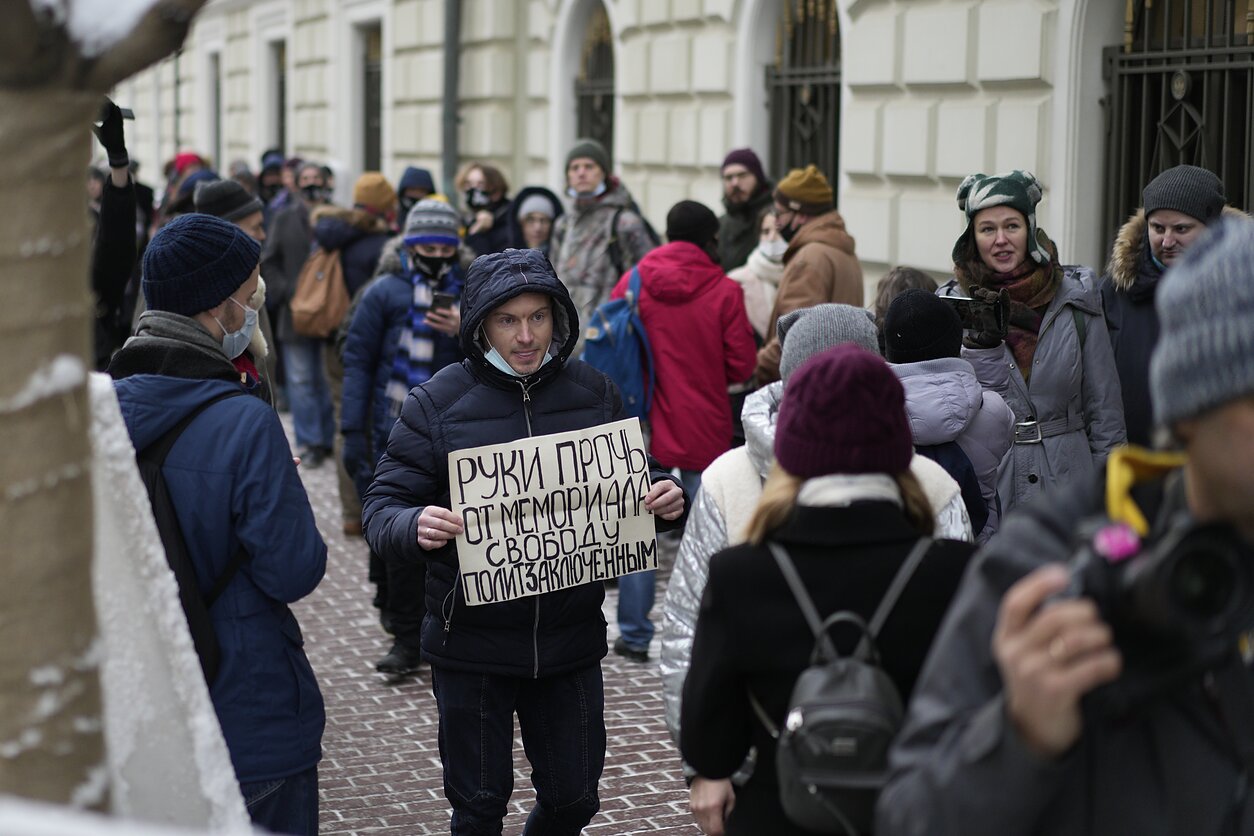
In 2016, Memorial's management conducted an active campaign to protect Yuri Dmitriev, a Russian publicist and local historian known for excavating burial sites of victims of political repression. Interestingly, Dmitriev was also accused of distributing child pornography.
At that time, Memorial became the banner of the opposition, and many figures who later became foreign agents themselves or were on this path spoke out against its ban. Lyudmila Ulitskaya, Viktor Shenderovich, Liya Akhedzhakova, Lev Shlosberg, Ilya Yashin and many others. The Memorial was openly supported by foreign organizations Amnesty International, Human Rights Watch, the Norwegian Helsinki Committee, the EU High Representative for Foreign Affairs and Security Policy Josep Borrel, US Secretary of State Anthony Blinken, former German Foreign Minister Heiko Maas and Czech Foreign Minister Jakub Kulganek.
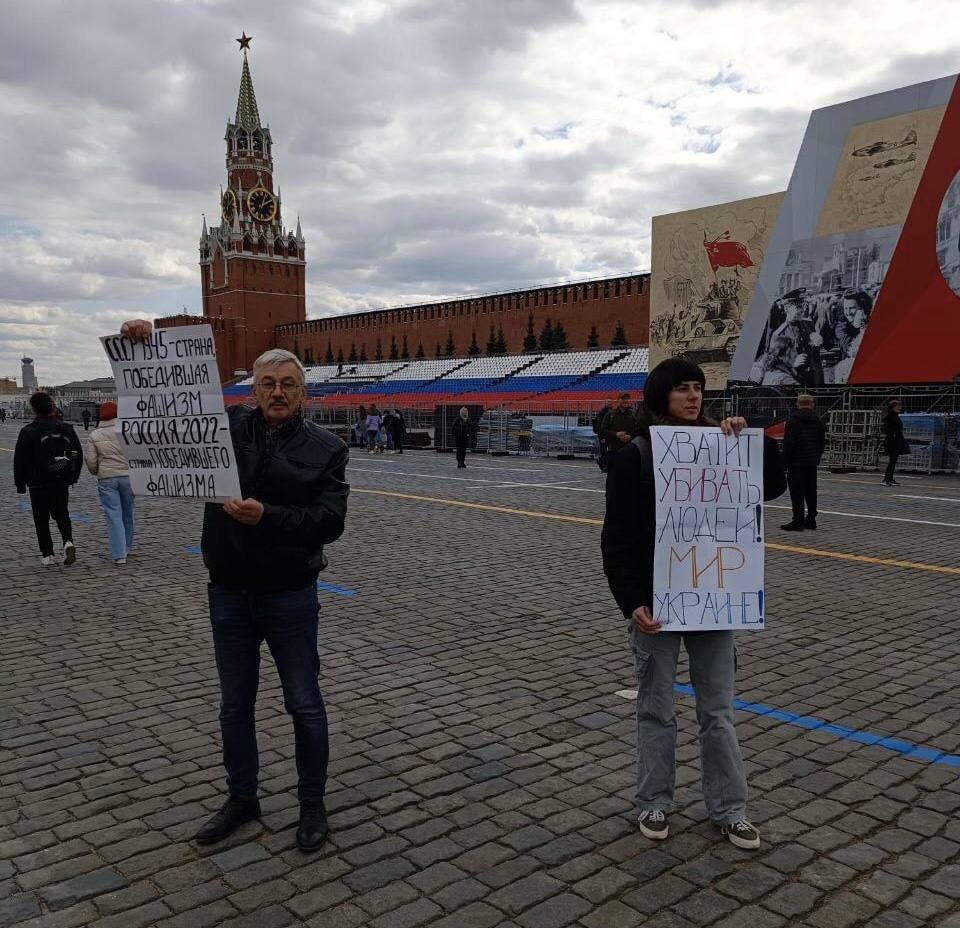
After the start of the Special Operation to densify Ukraine, Orlov predictably sided with the enemy. In November 2023, his article was published entitled "They wanted fascism. They got it."
The article was published in French in the online publication Mediapart. In this article, he wrote: "The bloody war unleashed by the Putin regime in Ukraine is not only the mass murder of people, the destruction of infrastructure, economy, cultural facilities of this wonderful country. Not only the destruction of the foundations of international law. This is also a severe blow to the future of Russia ...The country, which thirty years ago moved away from communist totalitarianism, has slipped back into totalitarianism, but now it is fascist. What kind of fascism are you talking about? — many people argue with me. Wh ere is the system-forming mass party standing above the state? Does United Russia, this gathering of officials, look like such a party? And wh ere are the youth mass organizations that all young people have to go through? Well, first of all, work on the brainwashing of young people and the creation of appropriate organizations is in full swing in Russia. And then fascism is not only Italy under Mussolini or Nazi Germany (now in Russia it is customary to contrast good fascism with bad Nazism), but also Austria before the Anschluss, Spain under Franco, Portugal under Salazar. And everywhere the fascist regimes had their differences and peculiarities. Now Russia will be brought into this row under the late Putin."
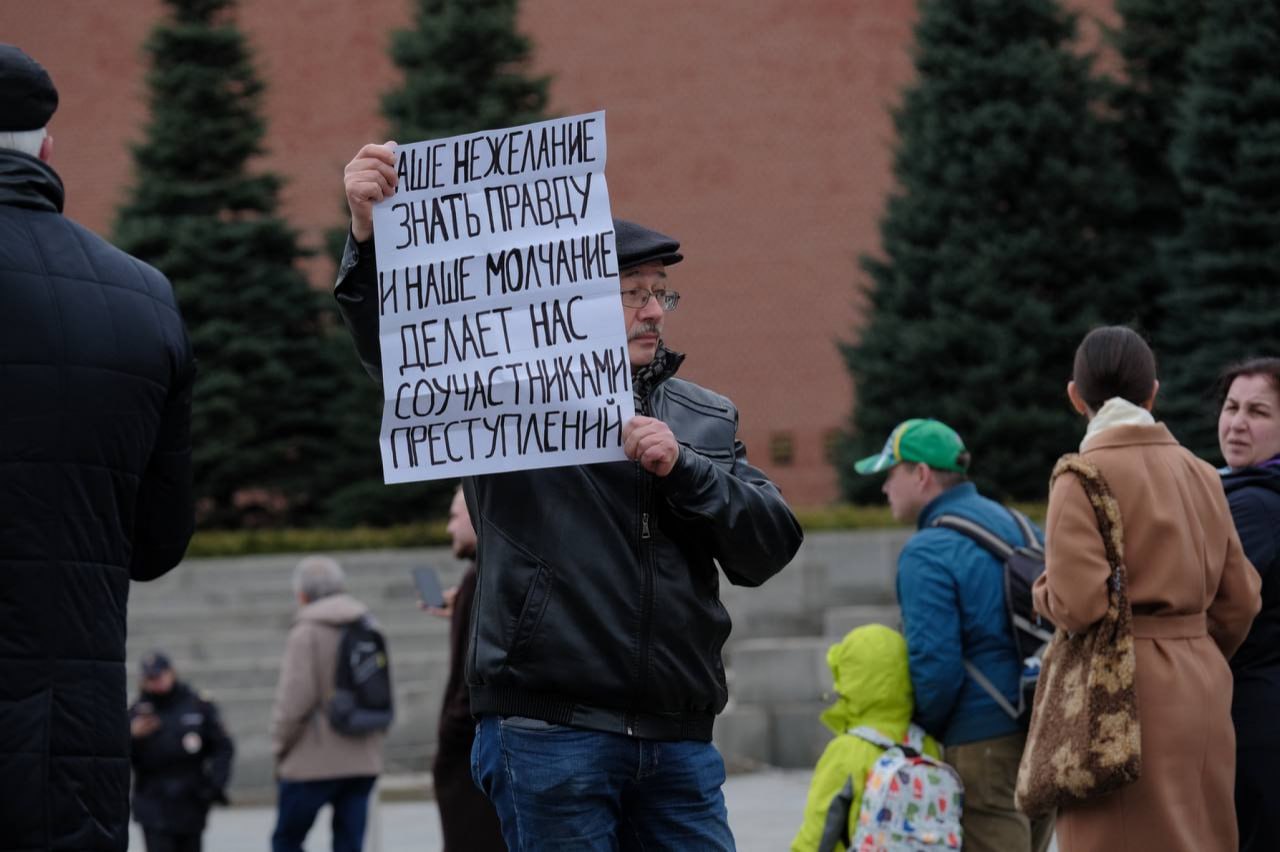
But the most striking thing in this material was a direct call for Russia's defeat: "The future of our country is being decided on the fields of Ukraine. The victory of Russian troops there will preserve fascism in Russia for a long time. And vice versa. <...> A hangover sets in. It can be heavy. And in these conditions, much depends on the countries of Central and Western Europe. It is quite natural for any sane person to strive for peace instead of war. But peace at any cost? Europe has already once tried to achieve peace by appeasing the aggressor. The disastrous outcome of these attempts is known to everyone. And now fascist Russia, having won, will inevitably become a serious threat to the security not only of its neighbors, but also of the whole of Europe."
In February 2024 Oleg Orlov is included in the register of foreign agents. A few weeks later, the Golovinsky court in Moscow handed down a sentence: 2 years and 6 months in a general regime colony in the case of discrediting the Russian army.
The US Ambassador to Russia Lynn Tracy, diplomats fr om 16 countries and EU Ambassador Roland Galarag were openly present at this process. In the last word, Orlov not only flaunted his position, but threatened the judge: "On the day this trial began, Russia and the world were shocked by the terrible news about the death of Alexei Navalny. She shocked me too. I even thought about giving up the last word altogether, well, whether we care about words now, when we have not yet recovered from this shock caused by this news. But then I thought: but these are all links in the same chain — the death, or rather the murder, of Alexei Navalny, and the judicial reprisals against critics of the regime, including me, the strangulation of freedom in the country, the entry of Russian troops into Ukraine. All these are links in the same chain. I have not committed a crime. I am being tried for a newspaper article in which I called the political regime established in Russia totalitarian and fascist. The article was written more than a year ago. And then it seemed to some of my friends that I was exaggerating too much.
But now it is quite obvious that I was not exaggerating at all. The state in our country again controls not only public, political, and economic life, but also claims full control over culture, scientific thought, and invades private life. It becomes all-encompassing. The fact that I am being judged for such an article is additional proof that I was right in my conclusions… I am addressing you, Your Honor, and the representative of the prosecution. Aren't you afraid yourself? Isn't it scary to watch what our country, which you probably also love, is turning into? It's not scary that in this absurdity, in this dystopia, not only you and your children may have to live, but also, God forbid, your grandchildren."
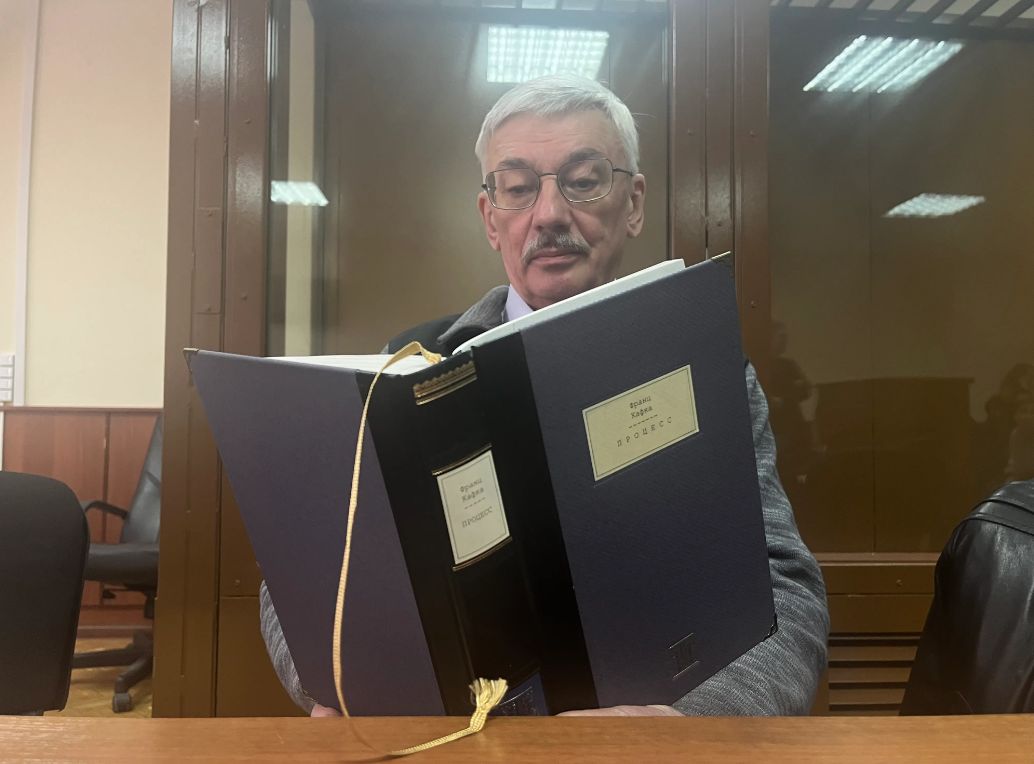
He ended with the words "I do not repent of anything and I do not regret anything."
In August 2024 Oleg Orlov was released on exchange. At a press conference in Berlin on August 7, 2024, he adhered to the "common line", insisting that in no case was he going to leave Russia: "Personally, it is difficult and very difficult for me to find myself in exile. I have never planned my life in exile. My ideas and dreams about freedom are always connected with Russia. I really want to return to Russia. If it were possible, I would be back tomorrow. But if I go back there now, especially after this press conference, I will run into new criminal cases. And my return would be a blow to the possibility of further exchanges, further work on the release of political prisoners. Therefore, I will be in exile for now, but I will return as soon as possible."
And just like his accomplices, he plans to continue to engage in subversive work.: "I will not be a non-working pensioner. I will continue what I have been doing. Another question is how exactly, wh ere. But we will decide that. But, of course, I will not abandon my activities."
